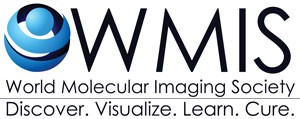
The incidence of infectious disease as well as opportunistic infections accompanying other major diseases is increasing. Specific microbiological diagnosis is established to a limited degree for pulmonary infections, and the interpretation of sputum and bronchoalveolar lavage samples is problematical because of the lack of clear distinction between colonization and infection. Histological demonstration of microorganisms in tissue biopsy remains the most reliable proof of invasive opportunistic infection, but is rarely available because of the risk of haemorrhagic complications. Many organisms that do not normally cause disease in immunocompetent persons can become life-threatening in those with compromised immune systems. Cancer patients undergoing immunosuppressive therapy and transplant recipients are especially at risk for contracting one of these infections as most people who die of AIDS do not die from the virus itself. They die from opportunistic infections.
WMIS invites you to find your place to grow, collaborate and make a difference – join the IOI Interest Group today.
Members: Interest Groups are open to current WMIS Members. There is an annual Interest Group membership fee of $20 which is requested to help offset administrative costs. To join an interest group, please click the button below.
If you are not a current WMIS member, please click the button below and create a new profile to join WMIS and join interest groups.
Highlights
Imaging of Infection
Hear from the experts about the applications of molecular imaging for infections and from the Imaging of Infections (IOI) Interest Group leader, Sanjay Jain.
Presenters:
Sanjay Jain, Johns Hopkins University, USA
Alvaro Ordonez, Johns Hopkins University, USA
Stephan Wiehr, Werner Siemens Imaging Center, Tubingen, Germany
Mission Statement
To globally advance the implementation of imaging technologies as well as the development of new biomarkers for infections of various origin.

